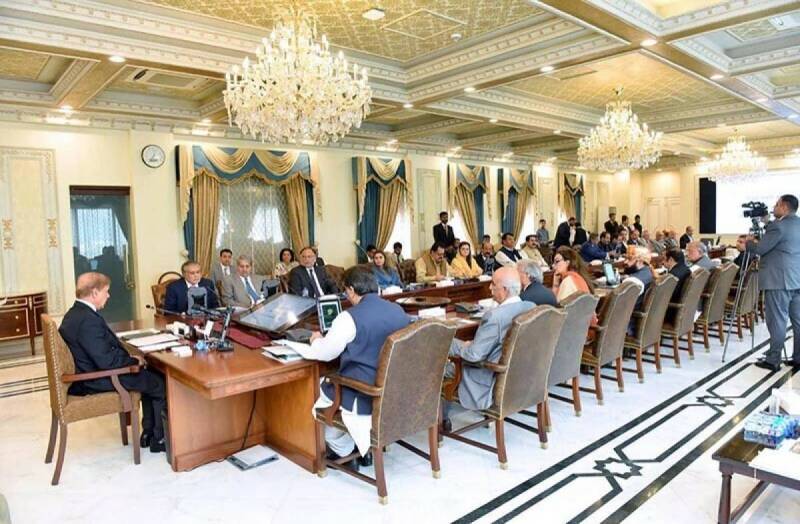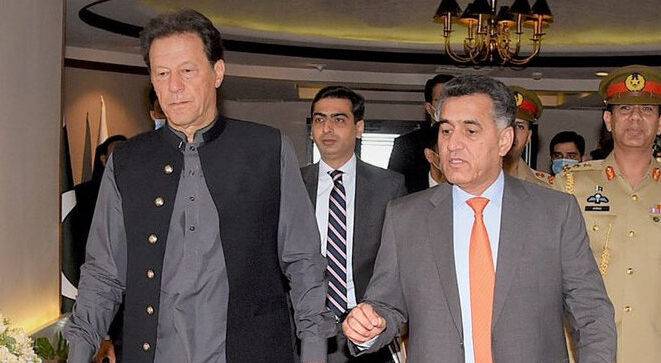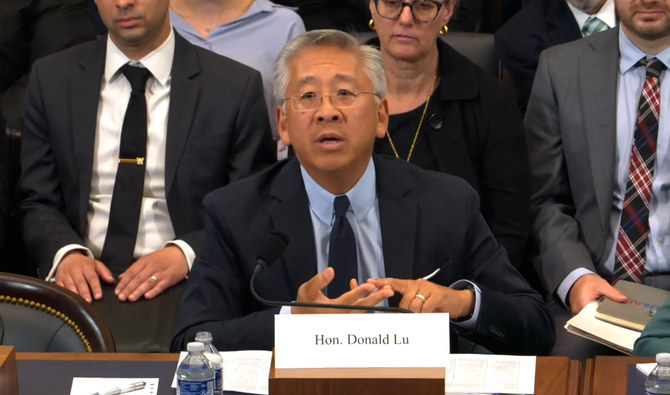The Federal Cabinet of Pakistan has postponed its decision regarding the potential banning of the former ruling party, Pakistan Tehreek-e-Insaf (PTI). The meeting, chaired by Prime Minister Shehbaz Sharif, took place in Islamabad and covered a range of topics, including matters related to special courts under the SECP Act, a Memorandum of Understanding (MoU) with Denmark, the appointment of the chairman of the Evacuee Trust Property Board, and an increase in the number of members on the Privatization Commission.
The federal cabinet meeting was marked by intensive discussions on various national issues. Among the significant items on the agenda was the potential imposition of a ban on PTI, which has been a contentious issue. However, the decision on this matter was deferred, primarily due to the reservations expressed by government allies. The delay underscores the complexities and political sensitivities surrounding the potential ban on PTI, a major political player in Pakistan.
Sources indicate that the cabinet’s reluctance to proceed with the ban stems from concerns voiced by coalition partners. The political landscape in Pakistan has been highly polarized, and any move against a prominent party like PTI is likely to have far-reaching implications. The government allies’ reservations reflect the need for broader consensus and careful consideration before making such a pivotal decision.
The PTI ban, the federal cabinet also deliberated on the potential invocation of Article 6 of the Constitution against several key figures, including former President Arif Alvi, PTI founder Imran Khan, and former Deputy Speaker of the National Assembly Qasim Suri. Article 6 pertains to the treason charges and is a serious constitutional provision that can have profound legal consequences.
Despite extensive discussions, the cabinet did not reach a final decision on invoking Article 6 against these individuals. The delay in this decision reflects the gravity of the issue and the need for further deliberations. Article 6 proceedings are complex and require thorough examination of legal and political ramifications before any formal action is taken.
The cabinet has resolved to continue deliberations on both the PTI ban and the Article 6 matter. This decision signifies the government’s intent to approach these issues with caution and to seek a comprehensive resolution. The postponement provides time for additional consultations and discussions, which are crucial for ensuring that any action taken is legally sound and politically feasible.
The continuation of deliberations also indicates that the government is keen on building a broader consensus among its allies and stakeholders. Given the political sensitivity of these issues, reaching a consensus is essential to avoid exacerbating existing tensions and to ensure that the decisions made are in the best interest of the country.
The delay in making a final decision on PTI’s potential ban and the invocation of Article 6 has significant implications for Pakistan’s political landscape. PTI, under the leadership of Imran Khan, has been a major force in Pakistani politics, and any action against the party or its leaders is likely to have substantial repercussions.
The decision to defer the ban on PTI also highlights the current government’s challenges in navigating complex political dynamics and maintaining coalition harmony. The reservations expressed by government allies underscore the need for careful negotiation and consensus-building in addressing contentious issues.




